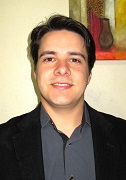Abstract
Aims: To understand (re)organization of the family of elderly patients suffering from Alzheimer’s disease from the perspective of complexity; to know the perceptions of teachers of health courses that relate to a project to support families/caregivers of Alzheimer patients about the need for family (re)organization; to identify/delineate care strategies that can contribute to the process of family (re)adjustment in coping with the disease. Method: This is an exploratory and descriptive study that uses a qualitative approach. Results: We identify some difficulties, such as unwillingness to accept the disease and the confrontation with the unknown. Among the possibilities, we highlight the discovery of new meanings. Teachers consider Alzheimers as a unique and multidimensional disease, and they suggest strategies such as the interconnection between support networks to assist in family (re)organization and care for the elderly. Conclusion: The disorientation experienced as a result of Alzheimer's disease is generated by, and is a generator of, continuous family (re)organization.
References
Alzheimer’s Association, 2012. Alzheimer’s disease facts and figures. Alzheimer's dementia. 2012; 8(2):131-8.
Morin E. O método 1: A natureza da natureza. 2ª ed. Porto Alegre: Sulina, 2008. 479p.
Backes DS, Colomé JS, Erdmann RH, Lunardi VL. Grupo focal como técnica de coleta e análise de dados em pesquisas qualitativas. O mundo da saúde. 2011; 35(4): 438-42.
Brasil. Conselho Nacional de Saúde. Diretrizes e normas regulamentadoras de pesquisa em seres humanos. Resolução nº 466, de 12 de dezembro de 2012.
Borghi AC, Sassá AH, Matos PCB, Decesaro MN, Marcon SS. Qualidade de vida de idosos com doença de Alzheimer e de seus cuidadores. Rev Gaúcha Enferm. 2011; 32(4):75 -8.

